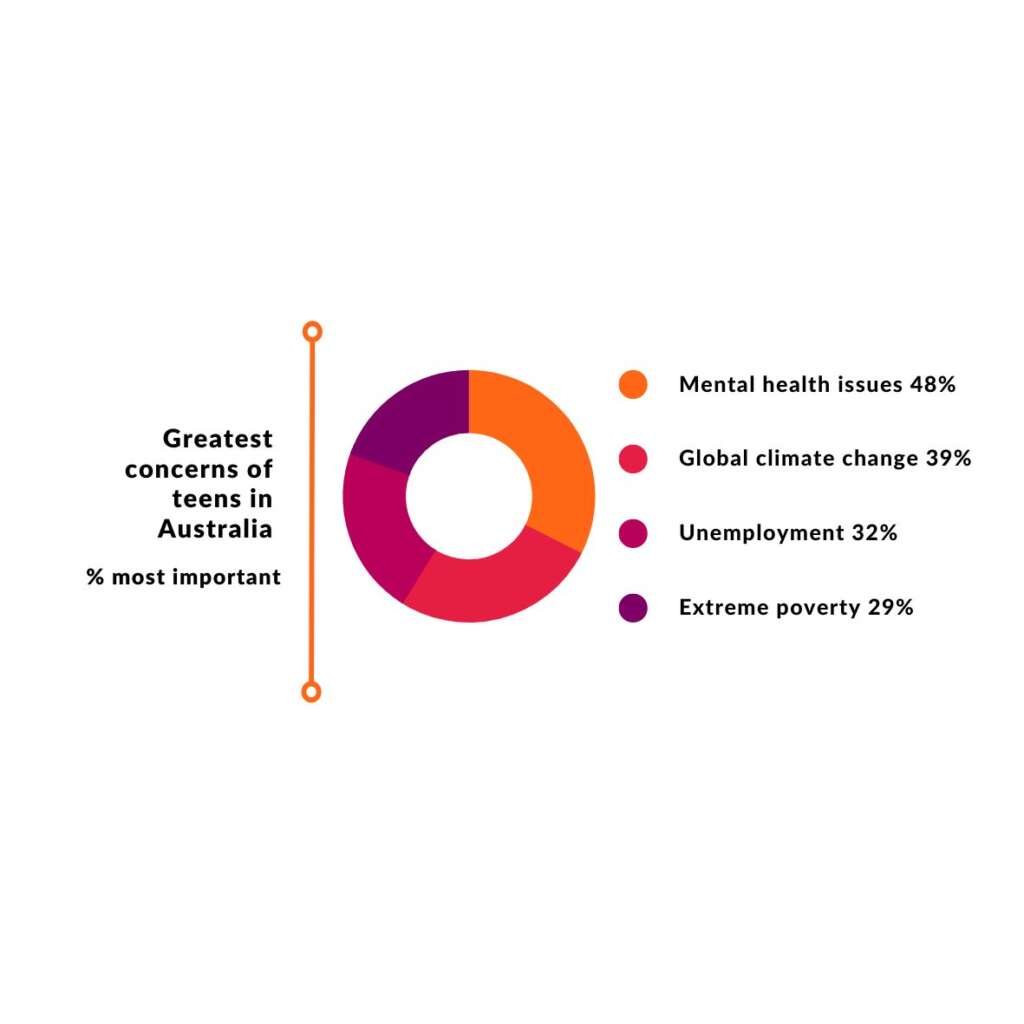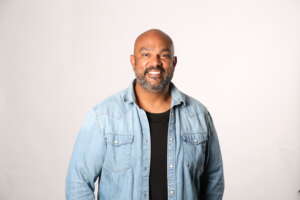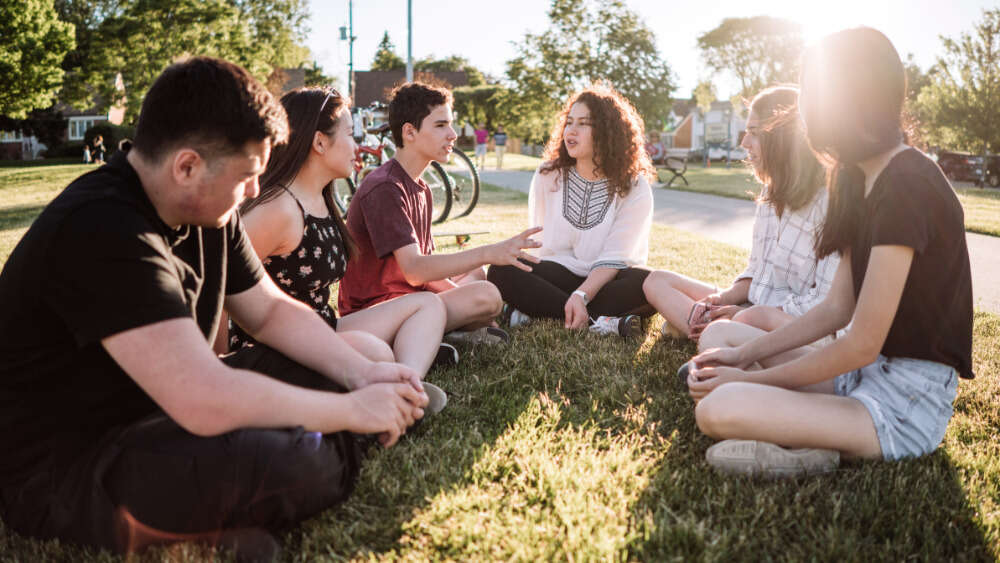If we want to empower the next generation of youth, we need to start with listening.
It sounds so simple, doesn’t it?
But, if we are looking at how to transform the church into a ministry that youth want to be a part of, it really starts with their voice, not ours.
In a digital, questioning, experiential, post-pandemic age, it’s vital to have a posture of listening so we can set them up for the greatest possibility of success.
When we listen, we learn that this generation is: open and inclusive, seeking truth, authenticity and change. They are open to different perspectives, faiths, and cultures. This is a good thing!
Australian teens are falling behind against the global averages on how they relate to Jesus, the Bible and how they feel they can impact the world around them.
In order to help ministry leaders understand how teenagers see their faith and the world, research organisation Barna Group conducted a first-of-its-kind international research study into the youngest cohort (13 to 17 year old’s) to be studied to date.
The Barna Open Generation study includes nearly 25,000 teens from 26 countries (including 1000 from Australia), who shared their thoughts about Jesus, the Bible and issues related to justice.
The study was developed and conducted by Barna Group in 2021, in partnership with Alpha, Biblica and World Vision, with additional support from Christian Vision, Bible Study Fellowship, Christ In Youth, and the Association of Christian Schools International.
The results of the Australian segment of The Open Generation were recently released.
The study asked teens three core questions: what do you think about Jesus, what do you think about the Bible and are you interested in social justice?
For church leaders, schools and parents, some of these results are challenging.
Most teens seemed OK with Jesus. But then we saw a big drop in those who saw the relevance or significance of the Bible and then a big jump up again when they were asked if they saw a role for themselves in making the world a better place.
These three points were never supposed to be disconnected.
The person of Jesus, and what he had to say and the way he lived his life, was very much grounded in the word of God to humanity.
Part of the challenge that exists for us now, is how do we bring spirituality, discipleship and context together in a meaningful way for the next generation?
The top four things keeping them up at night are: mental health, climate change, their future jobs and extreme poverty.
Australian teens are falling behind against the global averages on how they relate to Jesus, the Bible and how they feel they can impact the world around them.
While these results are alarming, it’s not a surprise.
What is clear from the report is that our teens do not have a sense of identity, purpose and connection to community.
On top of this, the top four things keeping them up at night are: mental health, climate change, their future jobs and extreme poverty.
Australian teens are unique, compared with other teens from around the globe, in mental health being their greatest concern.
They are either dealing with mental health issues or fear they will face them.
We need to urgently address these real issues and work with young people to help unpack the things that are causing them anxiety.

Statistics from the Barna Open Generation study
Every amazing movement in history has usually started with a young person deciding: “this is not OK in the world and we need to fix it”.
This report is an invitation for the church to dig a little deeper and engage with the upcoming generation so that we can assist them in reshaping how they think, what they believe and how they can turn up as their best selves in the world.
All throughout the Scriptures God is reminding us that he’s at work and he’s certainly at work in the next generation.
We have to move our focus from the media agenda or hot topics and look toward his presence: to uncover what he is already doing in the lives of teens in Australia.
Youth represent the future of the church — and they have hearts that long to change the world.
When we start at God’s presence, that’s where we will capture the hearts and minds of the generations.
This report is an invitation for the church to dig a little deeper and engage with the upcoming generation.
Our job is to listen and help them to understand the connection that their yearning for justice has to Jesus and the Bible. This is what will lead to an extraordinarily hopeful future — for them and for those they long to serve.
Imagine what it could look like if our young people were empowered to show love, kindness, mercy and compassion towards some of the world’s most challenging problems and they felt they could be a part of the solution.
Isn’t that what we want our church and our young people to be known for?
World Vision is passionate about seeing all children and young people realise what it means to live life to the fullest.
This is the moment the church needs to courageously lean in towards the next generation so they can be all that they are destined to be.
Because they are speaking loudly about what matters the most to them. It’s our job to pull up a chair and listen.
Open Generation conference events
World Vision Australia is hosting three events to unravel the findings from The Open Generation study:
BRISBANE – Monday 13 March, 2:00pm-4:30pm, Riverlife Baptist Church
SYDNEY – Wednesday 15 March, 2:00pm-4:30pm, St Barnabas Anglican Church
MELBOURNE – Friday 17 March, 2:00pm-4:30pm, Crossway Baptist Church
To register, go to worldvision.com.au/church.
Also keep your eye on the website for information on an upcoming four-week online sprint, conducted by World Vision and Barna, which will be a test and learn space to share best practice in teen engagement for pastors, youth leaders, chaplains, school teachers and parents.

Noddy Sharma
This is the start of a conversation – a deep and long conversation – on how we can turn up and unleash our young people to change the world.
Rev. Noddy Sharma is Head of Community, Faith and Partnerships for World Vision Australia.
Email This Story
Why not send this to a friend?


